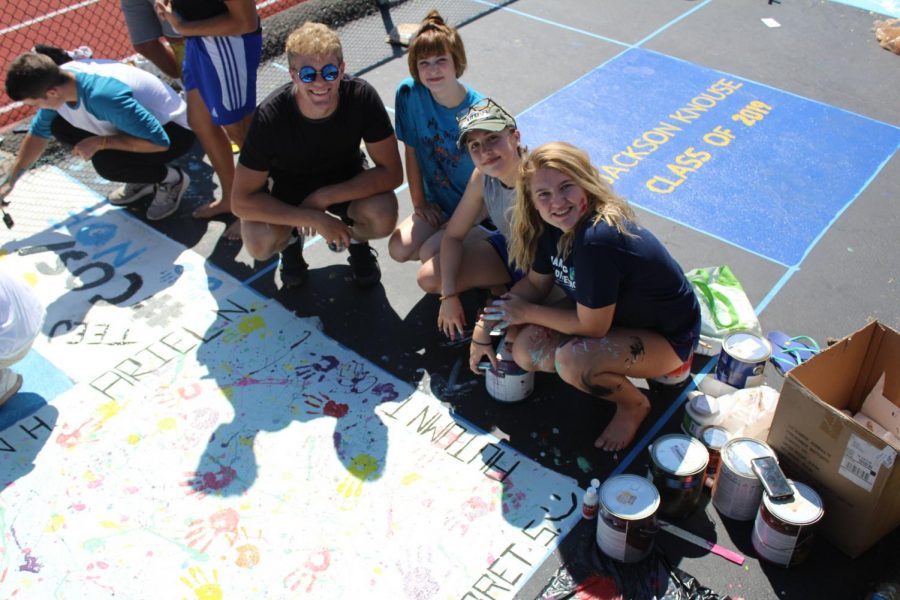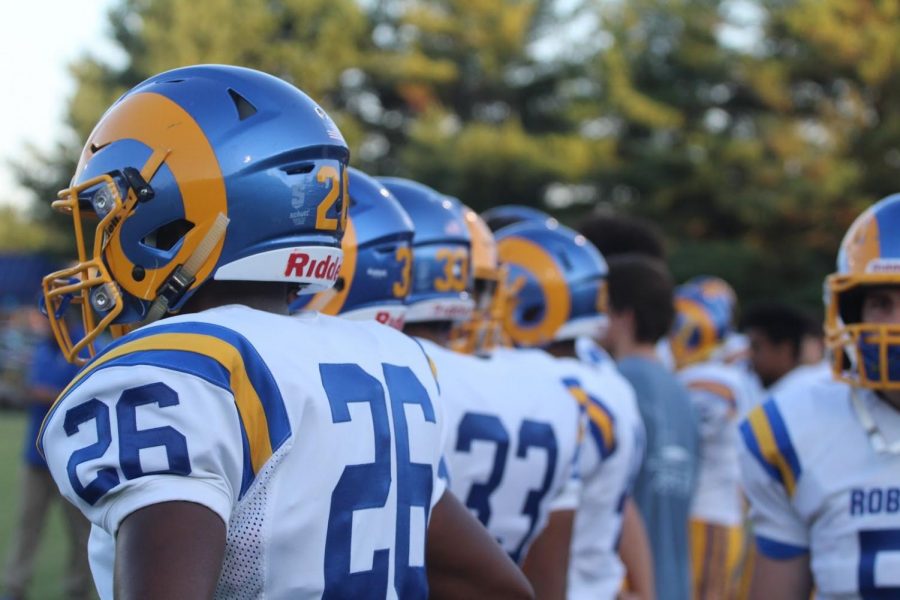It’s five A.M. in the morning in late fall. EMT Ankoni Lowman jumps to his feet as the fire alarm goes off in the Vienna Fire Station. Everyone scrambles to the vehicle as they get a call for a car fire.
“I was riding in the back of the ambulance, the sirens are going and it was swaying back and forth, we were weaving through traffic,” Lowman said. ”We arrived at the scene and there were two squad cars already there.”
The scene was contained and everyone at the scene turned out to be okay.
Lowman said the first time you go out on a call, the first emotion is fear.
“It’s scary, there’s so much pressure on you when you realize someone’s life is in your hands,” Lowman said. “When you go to a scene, you are shaking. You are excited to be on the job but you’re afraid at the same time of all the possible consequences of your actions.”
Lowman began his training to become a volunteer EMT late this summer, before school started. Lowman said the training was rigorous but had lots of one on one instruction with a certified instructor.
The biggest thing Lowman has done so far has been back boarding a patient, as he’s still in training. He will become fully certified in May, after a 1 month of Level one training, 5 months of EMT Classes, and one more month of EVOC training. His future plans are to then attend fire school.
When Lowman arrived at the station, it was intimidating for him at first.
“I was so nervous because I didn’t know anyone, but as I got to know the people at the station, it’s been like a second family for me,” Lowman said. “Everyone gets along really well when we’re at the station.”
Lowman said he was really surprised at the amount of people there willing to help out and take time out of the day to help.
Roger Perdomo, who is a firefighter at the station, said everyone knows their respective roles during a call.
“It depends on the type of call you get, but everyone has a specific task they know they’ll do,” Perdomo said. “We all know each other’s strengths and weaknesses so nobody does something they’re not capable of doing.”
Lowman said the most important aspect of the job is that you have to be willing to put others in front of yourself in the event of a crisis.
“You really learn the value of human life,” Lowman said. “When you’re on a call on someone under 18 and their parent is in the ambulance with them, seeing the smile on their face knowing their child is safe is pretty incredible.”
Perdomo said different aspects of the job hits people emotionally differently.
“We all have different perspectives and different backgrounds but for me, getting a call and seeing an elderly person alone always leaves a mark,” Perdomo said. “In my culture, relatives always take care of the elderly in the family, there’s someone there, so it’s really difficult for me to see something like that.”
Perdomo said the atmosphere at the station is very friendly and everyone gets along really well with each other. It’s like another family.
“We’re always playing jokes on each other to lighten the mood,” Perdomo said.
Howard Springsteen, who was the President of the Vienna Fire Station from 2000-2009 and is still involved at the station, said when a new member comes in one of the senior instructors shows them around the station and gives them an idea of what they’re going to experience on the job.
“We typically look for someone who has an open heart and mind,” Springsteen said. “Volunteers at the station have a sense of service and are really active in the community.”
Helping people and making a difference in the community is the main reason why Lowman is doing this.
Lowman said, “I’m doing it because every time we save a life, whether it be an 80 year old lady, or a 5 month old baby, we are making a person happy, we are making someone smile, and that’s what matters to me, that’s what life is about. We all live and we all know we are going to die, but it’s how we live that life that defines who we become. What is life without happiness? What is life without love and care? Take away those qualities and we are reduced to nothing. We are able to contribute to fixing something in the world to benefit. That’s why I joined the station. I just want to see that smile on a patient’s face, and being able to tell them everything is going to be okay.




